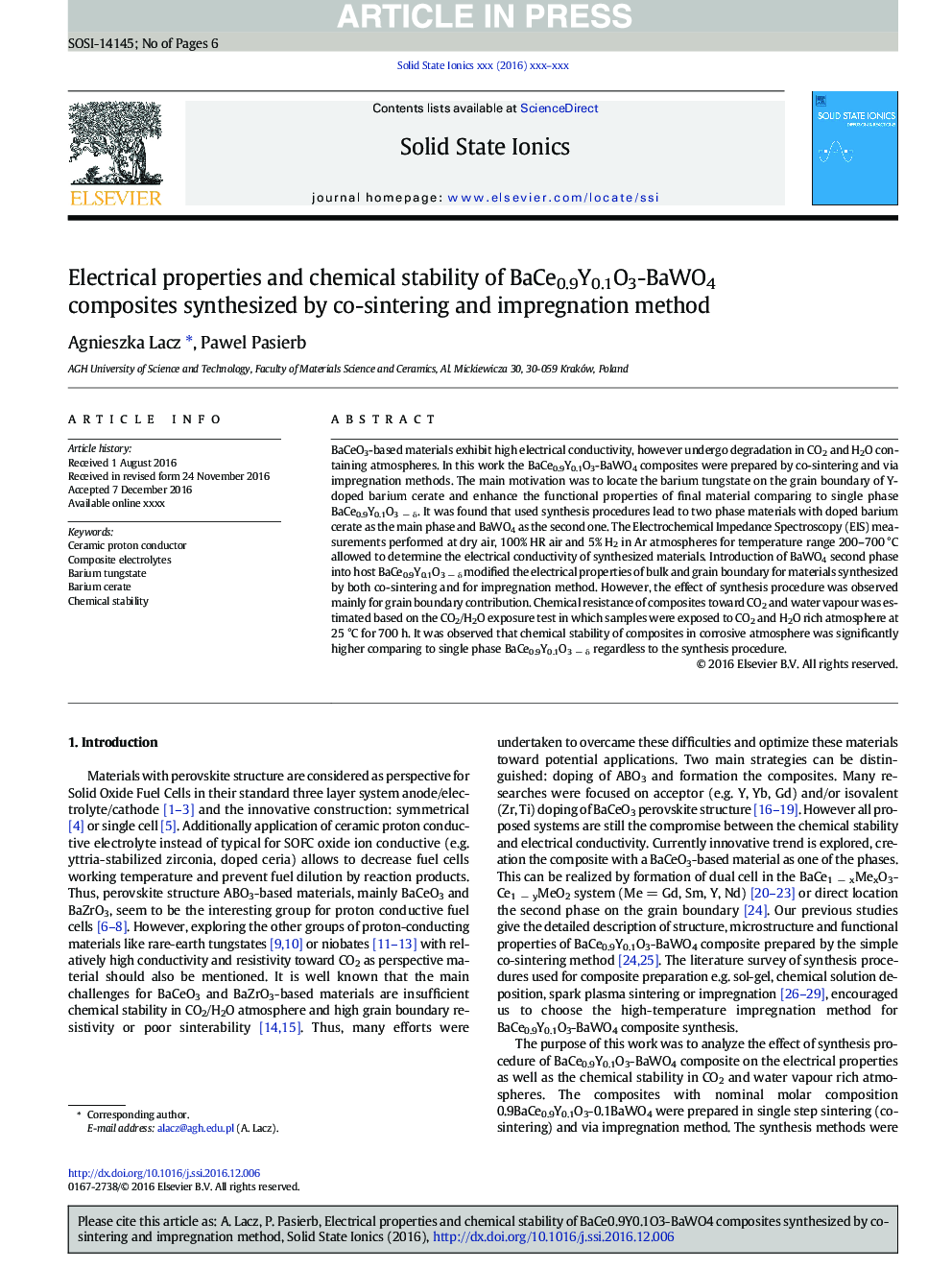| Article ID | Journal | Published Year | Pages | File Type |
|---|---|---|---|---|
| 5150451 | Solid State Ionics | 2017 | 6 Pages |
Abstract
BaCeO3-based materials exhibit high electrical conductivity, however undergo degradation in CO2 and H2O containing atmospheres. In this work the BaCe0.9Y0.1O3-BaWO4 composites were prepared by co-sintering and via impregnation methods. The main motivation was to locate the barium tungstate on the grain boundary of Y-doped barium cerate and enhance the functional properties of final material comparing to single phase BaCe0.9Y0.1O3 â δ. It was found that used synthesis procedures lead to two phase materials with doped barium cerate as the main phase and BaWO4 as the second one. The Electrochemical Impedance Spectroscopy (EIS) measurements performed at dry air, 100% HR air and 5% H2 in Ar atmospheres for temperature range 200-700 °C allowed to determine the electrical conductivity of synthesized materials. Introduction of BaWO4 second phase into host BaCe0.9Y0.1O3 â δ modified the electrical properties of bulk and grain boundary for materials synthesized by both co-sintering and for impregnation method. However, the effect of synthesis procedure was observed mainly for grain boundary contribution. Chemical resistance of composites toward CO2 and water vapour was estimated based on the CO2/H2O exposure test in which samples were exposed to CO2 and H2O rich atmosphere at 25 °C for 700 h. It was observed that chemical stability of composites in corrosive atmosphere was significantly higher comparing to single phase BaCe0.9Y0.1O3 â δ regardless to the synthesis procedure.
Keywords
Related Topics
Physical Sciences and Engineering
Chemistry
Electrochemistry
Authors
Agnieszka Lacz, Pawel Pasierb,
